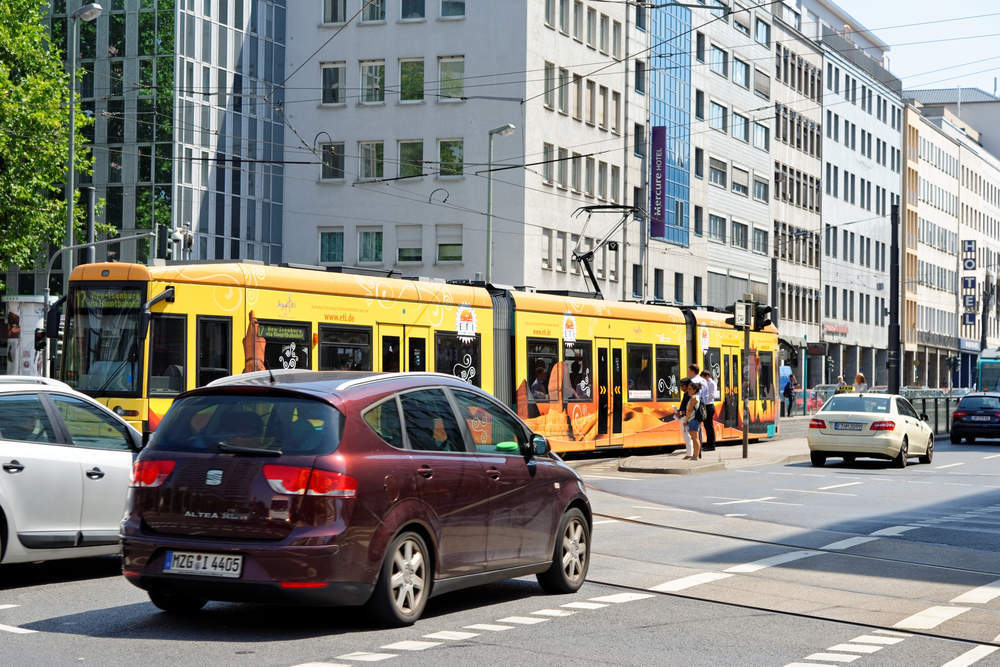
The Federal Administrative court of Leipzig has ruled in favour of allowing local authorities to impose bans on heavily polluting diesel cars.
The landmark ruling is expected to shake up the auto industry and upend transport policies in Germany and across Europe. The German government and the car industry both opposed the ban.
Lobby group Environmental Action Germany (DUH) brought the case against authorities whose capital cities Stuttgart and Dusseldorf had exceeding European Union limits on emissions as a result of diesel cars.
At certain junctions in Stuttgart, German international broadcaster Deutsche Welle (DW) recorded emissions that equalled 73mg per cubic metre which is almost double the EU standards set in 2010.
DW estimates that nitrogen oxide levels in German cities have led to approximately 10,000 premature deaths a year.
Lower courts in the two cities ruled for that banning of diesel cars was the “most effective” means to improve air quality in urban areas.
How well do you really know your competitors?
Access the most comprehensive Company Profiles on the market, powered by GlobalData. Save hours of research. Gain competitive edge.

Thank you!
Your download email will arrive shortly
Not ready to buy yet? Download a free sample
We are confident about the unique quality of our Company Profiles. However, we want you to make the most beneficial decision for your business, so we offer a free sample that you can download by submitting the below form
By GlobalDataThe states of Baden-Wuerttemberg and North Rhine-Westphalia which contain Stuttgart and Dusseldorf appealed the decision in the Federal Administrative Court in Leipzig.
These areas are in Germany’s car manufacturing heartland. Stuttgart is the location of the headquarters of Mercedes Benz.
What was said:
Global data tourism analyst, Konstanina Boutsioukou, commented on the effect air pollution from diesel vehicles could have on a city, saying:
Air pollution is one of the biggest challenges faced by modern urban areas worldwide; it presents a major risks for the health of city dwellers, hampers productivity and quality of life and has negative ramifications for the economy as a whole.
Urban populations are rising globally at an unprecedented rate; current estimations show that by 2050, 70% of the global population will be living in cities.
The phenomenon of urbanisation exacerbates existing problems such as social stability, access to water and food, while it increases the risk of the spread of diseases and of course aggravates air pollution.
Cities around the world are making efforts to adapt and mitigate such challenges… Though a potential ban would initially create frustration among consumers, automakers and public bodies, it is an essential first step for creating greener, safer urban areas.
What this means:
The ruling by the Federal Administrative Court of Leipzig does not mean that diesel car bans will be implemented but that German states and cities have the right to impose them without needing a change in federal legislation.
If German cities do decide to impose diesel car bans this would dramatically decrease the value of approximately 12 million cars across Germany.
Ugo Taddei, a lawyer for Client Earth who worked with DUH on the cases, told Speigel online he believes that “it will have a trigger effect on all other cases, because local authorities will have no excuse not to take action.”
This decision by the court puts pressure on German Chancellor Angela Merkel’s government, which has previously been accused of being too close to the car industry, to take more action to push car manufacturers to update the engine systems of diesel cars.
In 2017, the German federal government agreed with car makers to overhaul the engine management software of 5.3 million cars and fund public transport in cities.
Background:
DUH has pursued bans of diesel vehicles in nine other German cities in order to enforce clean air regulations by allowing diesel cars in city centres.
In 2016, German federal states took a vote confirmed they wanted to completely ban petrol and diesel cars and have 6 million electric vehicles on the road by 2030.
The European Court of Justice are considering taking legal action against Germany for its failure to mitigate the high levels of nitrogen dioxide emissions in 90 cities.







